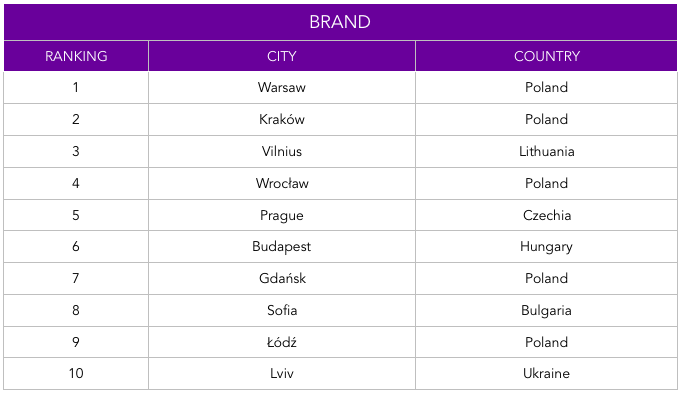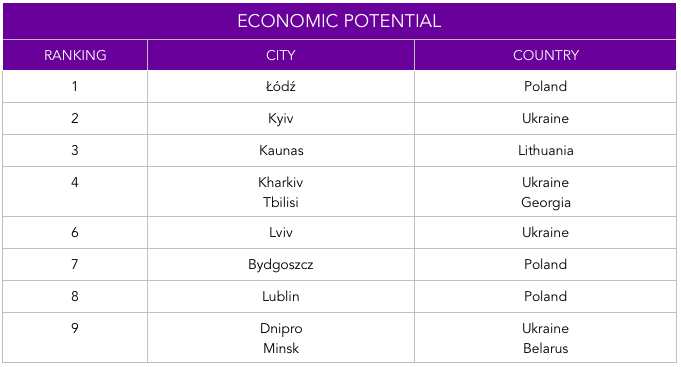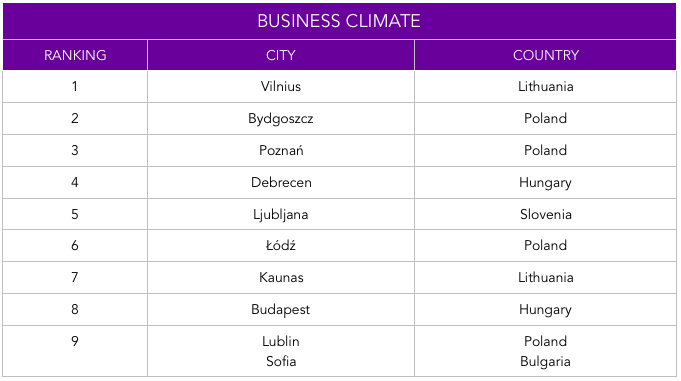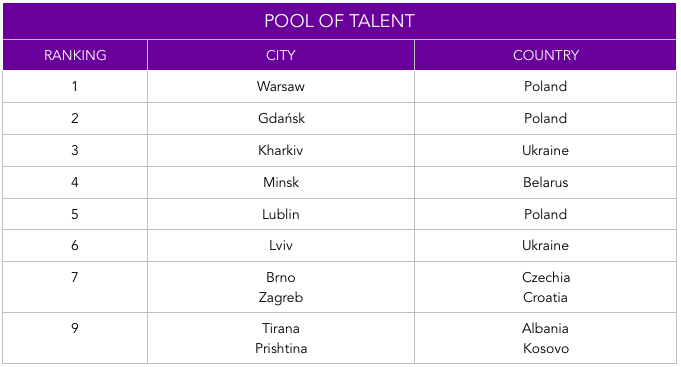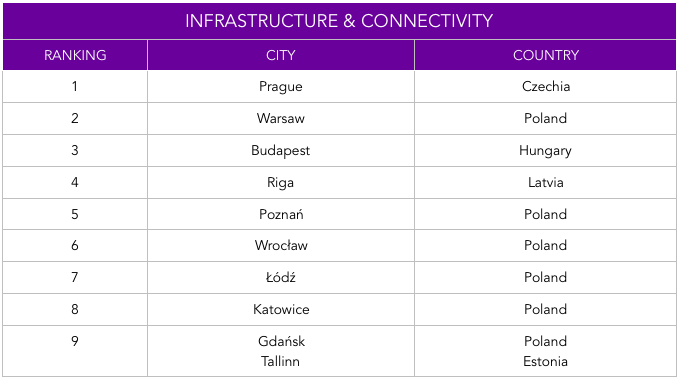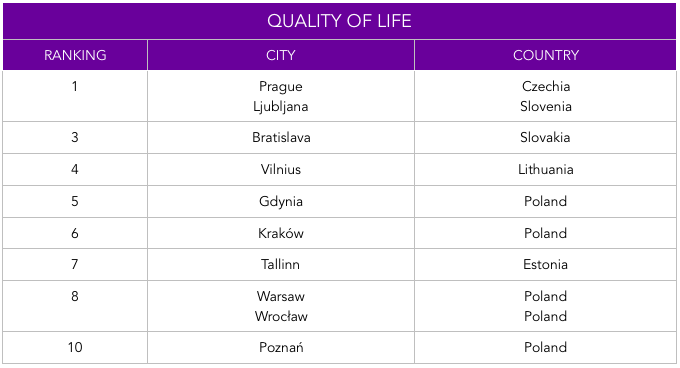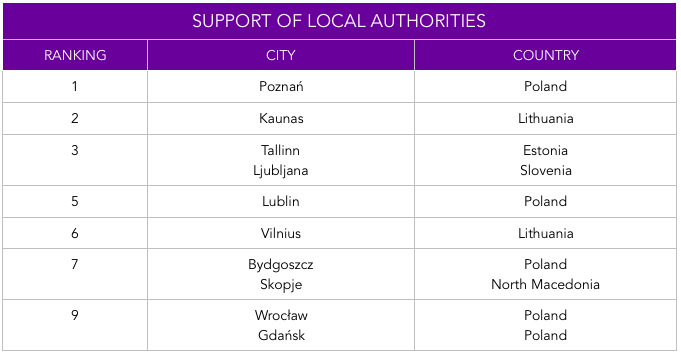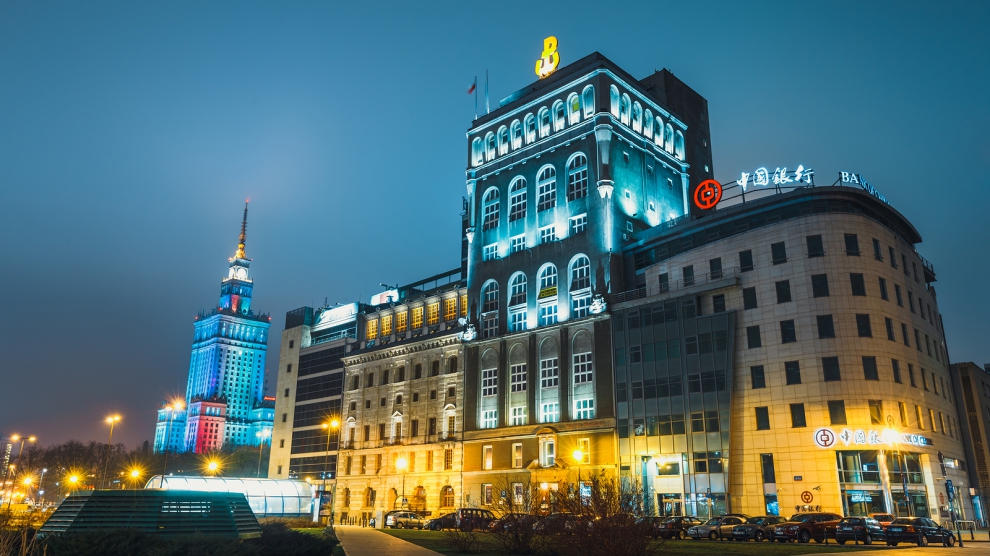Mayors across the region have been sharing the secrets of how their cities came out on top in Emerging Europe’s 2019 Business Friendly Perception Survey.
The survey was the result of a major new research which looked at the business environment in the region’s key cities. A panel of 25 global location advisers and foreign direct investment experts weighed up the various merits of the 75 cities of emerging Europe which are either capitals or have a population of more than 200,000 inhabitants.
“I believe that open and friendly Warsaw is an excellent place for innovation,” said Rafał Trzaskowski, the mayor of the Polish capital, whose city topped the overall ranking. “Investors, ambitious students and specialists want to be a part of the city because of access to finance, attractive geographic location, architecture and high quality of life. It is creative people who develop our local economy. We offer them a wide range of office, commercial and warehouse spaces. We are a city that continues to develop dynamically.”
Mr Trzaskowski also highlighted the city’s modern and environment-friendly transportation system, and the length of the cycling network: now close to 600 kilometres. Besides taking the overall crown, Warsaw ranked first in two categories, Brand and Pool of Talent.
“Warsaw is a modern, smart city, following global trends, aiming at sustainable and intelligent development,” the Polish capital’s mayor told Emerging Europe.
A total of 31 cities in 16 countries made the top 10 in the index’s seven categories. Besides the Polish capital, leading performers include Vilnius in Lithuania, which ranks first for Business Climate, and which was second overall.
“Vilnius combines different elements essential for businesses to thrive in the city: a friendly regulatory environment, support from public institutions and a vast talent pool,” the city’s mayor, Remigijus Simasius, told Emerging Europe. “We aim that companies located in Vilnius would feel at home here and those eyeing their next investment opportunity would feel welcome to join the community. We have special programmes for investor soft-landing, after-care and relocation support.”
“The success of Poznań in the Emerging Europe ranking are the new projects we have attracted,” said Jacek Jaśkowiak, mayor of the city, which came first in the Local Authority Support category. “On the local market we welcomed eight companies: Transcosmos, Payworks, HOMAG, FEV, Conectys, Computacenter, GSK Finance Hub, and very recently NEXT IT. All this indicates that Poznań offers investors qualified staff and a business-friendly environment. The activities of our investor relations department were also appreciated in the ranking, which confirms that we respond best to the current needs of investors.”
It was another Polish city, Łódź, which topped the Economic Potential ranking. Hanna Zdanowska, the city’s mayor, believes that the city’s success is another step on the road to the city’s success in the future.
“We are really pleased with the fact that the changes which have been taking place in Łódź were noticed and appreciated,” she told Emerging Europe. “I am proud that Łódź was first in the Economic Potential category, as it shows that the direction that we follow brings results.”
Other category winners included the Czech capital Prague, third overall, first in Infrastructure and Connectivity, and joint first in Quality of Life, an honour shared with Ljubljana in Slovenia.
The full rankings can be viewed below.
